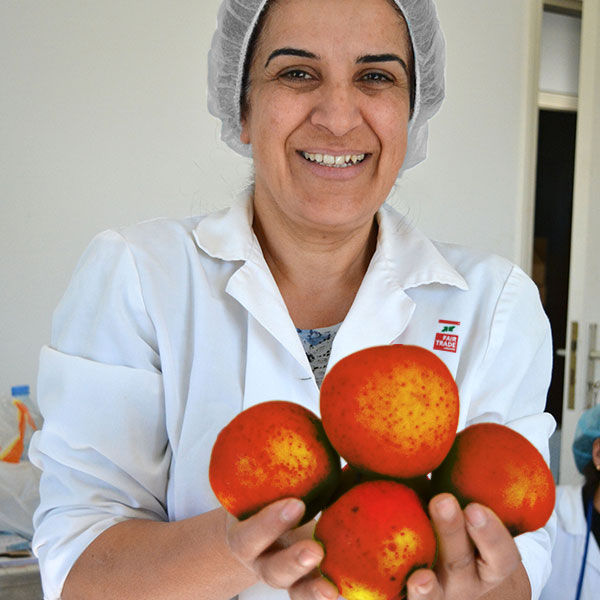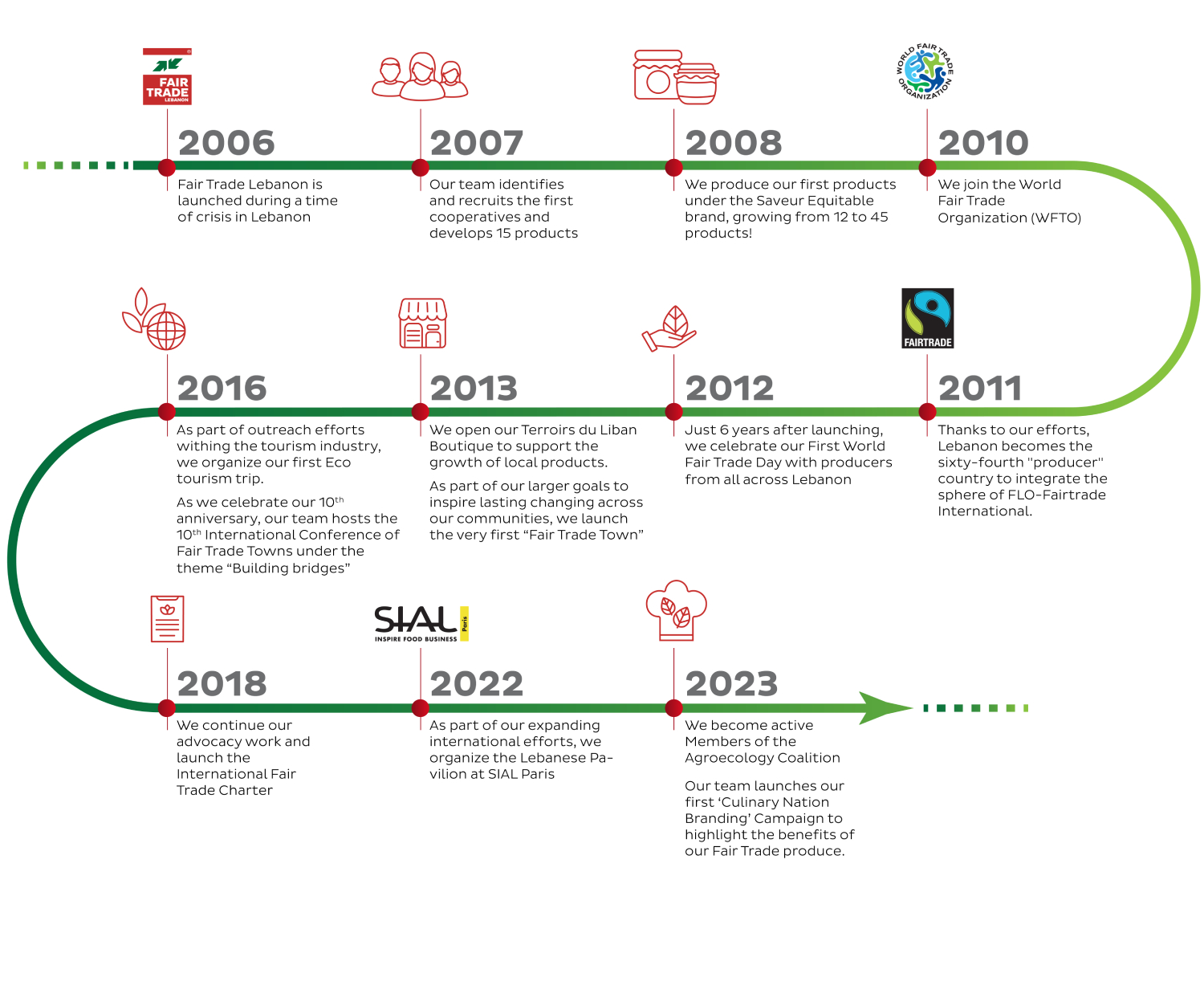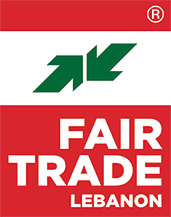Our Story
Our story
Fair Trade Lebanon (FTL) – A Tale of Hope, Heritage, and Resilience.
Amidst Lebanon’s economic crisis in 2006, five Lebanese friends decided to take matters into their own hands. Their goal? To improve the lives of rural communities in South Lebanon. Fair Trade Lebanon was born. For nearly two decades, this local Agro-Food and Economic development NGO has supported our community, sparkling a ripple effect of growth and prosperity. Together, we preserve tradition to build a better future for the country.
Thanks to extensive training, business development support, and market access, FTL works to improve the lives of local farmers and local producers, empowering cooperatives and SMEs in Lebanon’s rural regions.
FTL’s primary work is supporting Lebanon’s producers to foster economic growth, and enhance the exportation of all of the incredible products our country has to offer. Together, we work to make difference and build a future where Lebanese brands shine, and where Lebanon stands proudly as a beacon of productivity and sustainability.
From tragedy springs a beautiful story, one we proudly share.
Learn more about our story below:

Milestones


- Sustainable Agro-food practices
- Fostering economic growth
- Empowering local producers to thrive in local and international markets
- Empower Lebanese SMEs and small producers through business development
- Facilitate market access and export opportunities
- Showcase the richness of Lebanon’s culinary heritage and traditions
Our Values
Local
Change
What is Fair Trade?
The World Fair Trade Organization (WFTO), defines Fair Trade as “a trading partnership, based on dialogue, transparency and respect, which seeks greater equity in international trade. It contributes to sustainable development by offering better trading conditions to, and securing the rights of, marginalized producers and workers – especially in the South”.
